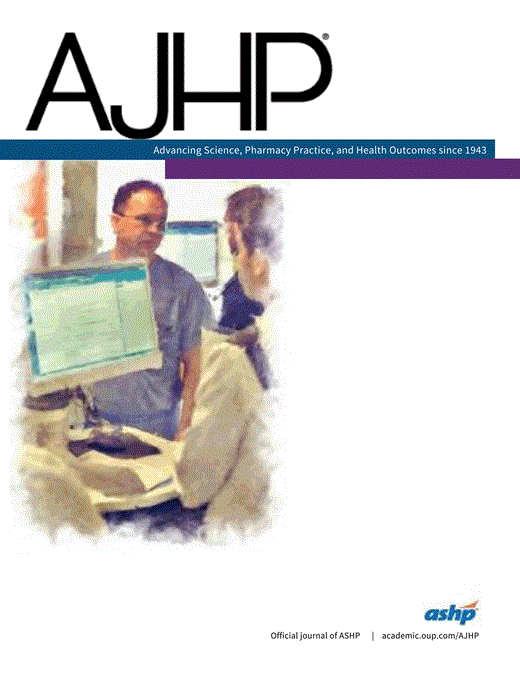-
Views
-
Cite
Cite
Charles T. Taylor, Debbie C. Byrd, Kem Krueger, Improving primary care in rural Alabama with a pharmacy initiative, American Journal of Health-System Pharmacy, Volume 60, Issue 11, 1 June 2003, Pages 1123–1129, https://doi.org/10.1093/ajhp/60.11.1123
Close - Share Icon Share
Abstract
The effect of pharmaceutical care on the prevention, detection, and resolution of medication-related problems in high-risk patients in a rural community was studied.
Adult patients who received care at clinics in a medically underserved area of Alabama and who were identified as being at high risk of medication-related adverse events were randomly assigned to a control group or an intervention group. The control group received standard medical care, and the intervention group received pharmaceutical care, including a medical record review, a medication history review, pharmacotherapeutic evaluation, and patient medication education and monitoring over a one-year period.
A total of 69 patients completed the study (33 in the intervention group and 36 in the control group). The percentage of patients responding to hypertension, diabetes, dyslipidemia, and anticoagulation therapy increased significantly in the intervention group and declined in the control group. Ratings for inappropriate prescribing improved in all 10 domains evaluated in the intervention group but worsened in 5 domains in the control group. There were no significant differences between the groups at 12 months in health-related quality of life or medication misadventures. Medication compliance scores improved in the intervention group but not in the control group. Medication knowledge increased in the intervention group and decreased in the control group.
Pharmaceutical care in a rural, community-based setting appeared to reduce inappropriate prescribing, enhance disease management, and improve medication compliance and knowledge without adversely affecting health-related quality of life.






Comments